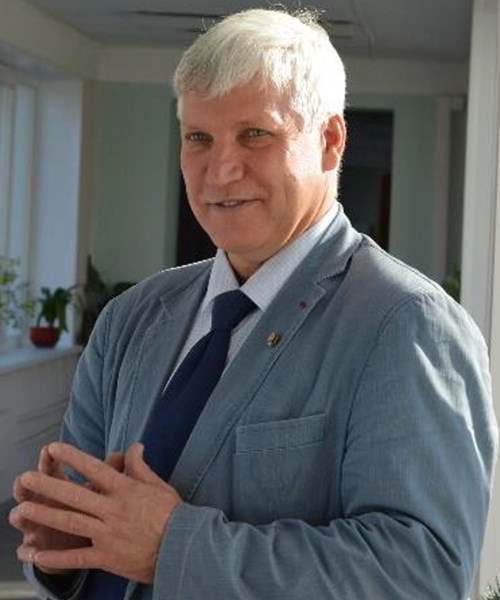The 5th International Workshop on Heat/Mass Transfer Advances for Energy Conservation and Pollution Control (IWHT2019) was held in Technopark of Novosibirsk Akademgorodok and Novosibirsk State University (Novosibirsk, Russia) on August 13–16, 2019.
The IWHT2019 is a regular international conference which is held once every two years since 2011. This series of conferences has also provided a unique opportunity to facilitate innovative thinking and to explore new theoretical and practical approaches through the sharing of ideas, basic research, and technology. Previous conferences have been held in Las Vegas, NV (USA, 2017), Taipei (Taiwan, 2015), Xi’an (China, 2013), and Xi’an (China, 2011).
The purpose of this workshop is to provide an international forum for exchange of latest technological information as well as for dissemination of high-quality research and development on heat/mass transfer problems in the area pertinent to energy conservation and pollution control. The workshop will be of particular value and interest to researchers, scientists, and engineers who are working in heat/mass transfer field for energy conservation and pollution reduction.
Organizers of the conference were Kutateladze Institute of Thermophysics SB RAS, and Novosibirsk State University. Supporting Organizations were Russian Foundation for Basic Research, International Centre for Heat and Mass Transfer, National Committee of Heat and Mass Transfer, Ministry of Science and Higher Education of the Russian Federation, and Chinese Society of Engineering Thermophysics.
More than 200 specialists from 16 countries attended this four-day meeting. The IWHT2019 included 8 plenary lectures, 28 keynote lectures, 29 invited reports, 107 oral regular presentations, and 86 poster papers. The plenary lectures delivered by Global Energy Prize laureate Academician RAS S.V. Alekseenko (Kutateladze Institute of Thermophysics, Novosibirsk, Russia), Prof. Q.W. Wang (Xi’an Jiaotong University, Xi’an, China), Prof. B. Sunden (Lund University, Lund, Sweden), Prof. H. Kuhlmann (TU Wien, Vienna, Austria), Prof. R. Wang (Shanghai Jiao Tong University, Shanghai, China), Prof. W. Lipiński (The Australian National University, Canberra Australia), Dr. Z. Guo (Rutgers University-New Brunswick, NJ, USA), Dr. L. Vasiliev (Huawei Technologies – Minsk Research Center, Minsk, Belarus). The conference topics covered areas, including clean energy and storage techniques, compact heat exchangers and advanced energy systems, multiphase flow and heat/mass transfer, transport phenomena in porous media, heat/mass transfer enhancement techniques, computational fluid dynamics and numerical heat/mass transfer, and nuclear energy. After thorough peer review and revision, 7 of the 258 presentations given at the conference were selected for inclusion in this special issue of Heat Transfer Engineering. These papers address various aspects of advances in heat and mass transfer both academia and technology.
We strongly recognize significant contributions by all authors without whom IWHT won’t be in existence. We especially record our gratefulness to the reviewers who have provided their expertise and strong effort in reviewing the manuscripts from the conference stage to special issue edition. Last but not least, we are indebted to the Editor-in-Chief of Heat Transfer Engineering Journal, Prof. Afshin J. Ghajar, for his careful editing of the final versions of the papers published in this special issue and for his dedication and willingness to publish this series of special issues highlighting the current research going on worldwide.
Additional information
Notes on contributors

Aleksandr N. Pavlenko
Aleksandr Pavlenko is Corresponding Member of Russian Academy of Sciences, a Professor and Head of the Laboratory of Kutateladze Institute of Thermophysics (Novosibirsk, Russia). In 1981, he graduated from the Physics Department of Novosibirsk State University. From 1981 to 1996, he worked as a junior research associate, research associate, senior researcher at the Institute of Thermophysics SB RAS. From 1996 to the present, he is the Head of Laboratory of Low-Temperature Thermophysics at the Institute of Thermophysics SB RAS. In 1990, he defended PhD Thesis, and in 2001 – the Doctor’s Thesis. His areas of expertise: hydrodynamics and heat/mass transfer processes in multiphase systems, transfer processes, and crisis phenomena at boiling and evaporation, dynamics of boiling regimes change; flow and decomposition of liquid films at intense evaporation and boiling, including nonsteady laws of heat release; heat/mass transfer in cryogenic systems, cryogenic distillation, hydrodynamic and mass transfer processes in separation columns with regular packing; heat/mass transfer enhancement in compact plate fin heat exchangers and on the structured surfaces. He is Member of the Research Council of the International Committee for Heat and Mass Transfer (ICHMT, since 2009), National Committee for Heat and Mass Transfer (NCHMT RAN, since 2007). He is the Editor-in-Chief of the Journal of Engineering Thermophysics, Editorial Board member of the journals High Temperature and Heat Processes in Engineering. He is the author and coauthor of more than 400 research works and 2 monographs.
